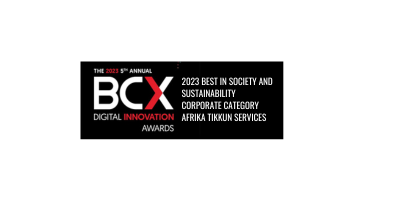Acknowledging the significance of technology for youth skills development
By Onyi Nwaneri, CEO of Afrika Tikkun Services
Strategically recognising the importance of youth skills development, World Youth Skills Day this July highlights just how important skills development is – not just for tomorrow’s future leaders, but for us all today.
It is by far one of the most pressing predicaments of the modern era and yet it is a key driver for addressing socio-economic challenges. It has the power to strengthen youth capacity, increase self-confidence and put an end to poverty.
Of course, this year we face some tough conditions never felt before. The COVID-19 pandemic has led to an increase in the youth unemployment crisis across the globe, and with high anxiety levels around returning to educational institutions, it is up to us to find a way to adjust to a ‘new normal’.
- The latest Stats SA Quarterly Labour Force Survey for Q1 2020 reports that the national unemployment rate is 30.1% whilst the percentage of youth aged 15–24 years who are not in employment, education or training (NEET) is 34.1%.
- According to the International Labour Organisations Global Employment Trends for Youth 2020 report, only one in three youth are employed, and whilst youth unemployment rates are fairly stable they remain higher than that of adults.
So, addressing the issue head-on is the 2020 theme for World Youth Skills Day is ‘Skills for a Resilient Youth in the Era of COVID-19 and Beyond’. A fitting topic considering the current circumstances.
As we know, the world has been significantly enhanced by technological advances over the past few years. It has become an essential in day-to-day life, but never before has it been more important than now. If this pandemic has demonstrated anything, it is the power of technology and its ability to connect and empower people.This is particularly true of its influence in the education and skills development sector. And this applies to both online and mobile technology as the rise of mobile continues to dwarf the use of desktops and tablets. In fact, the UN Broadband Commission is steadfast on its stance that ‘mobile technology is key to bringing ‘education to all’’.
Likewise, we believe that with technology we have the ability to create a sustainable infrastructure for eLearning; vital for the youth of today to continue studying anytime, anywhere and ultimately access economic opportunities, providing an additional boost to the economy. Our only concern is that young people without access to the tools needed for eLearning will fall behind, unless we can help them accelerate their ability to compete and engage in this ever-changing world.
The need for skills development, decreasing the school-to-work transition period and opening economic opportunities for employment and entrepreneurship should be focus areas for curbing the youth unemployment rate. We should be challenging young people to take advantage of the critical skills needed in the country and we should be leveraging our advancement towards the Fourth Industrial Revolution to skill more young people for technology-based and emerging careers.
Pre-pandemic, Afrika Tikkun Services started planning for the Fourth Industrial Revolution by recognising the need to increase connectivity, move learning online and promote the use of smart technology. At the start of lockdown, we were already well on our way to moving our Work Readiness, Specialized Skills Training and Learnership courses online to allow for uninterrupted learning, and we launched a new smartphone initiative to provide learners with a smartphone and data for mobile learning. With these educational opportunities we are able to position highly skilled applicants into aligned opportunities in the labour market and for those starting their own initiatives it will mean an additional boost to the informal sector and entrepreneurism.
We are certain that by shifting our 2020 initiatives online we can continue to assist youth develop new skills that will improve their chances of becoming productive citizens of the future. There is a whole world of career prospects out there for the skilled.
With these initiatives and campaigns in place we aim to minimise the negative impact felt by the global pandemic. We are accessible online and at the forefront of promoting science, technology, engineering, and mathematics skills development.
This is the just the beginning of our long-term plan for a sustainable post-pandemic learning infrastructure.



